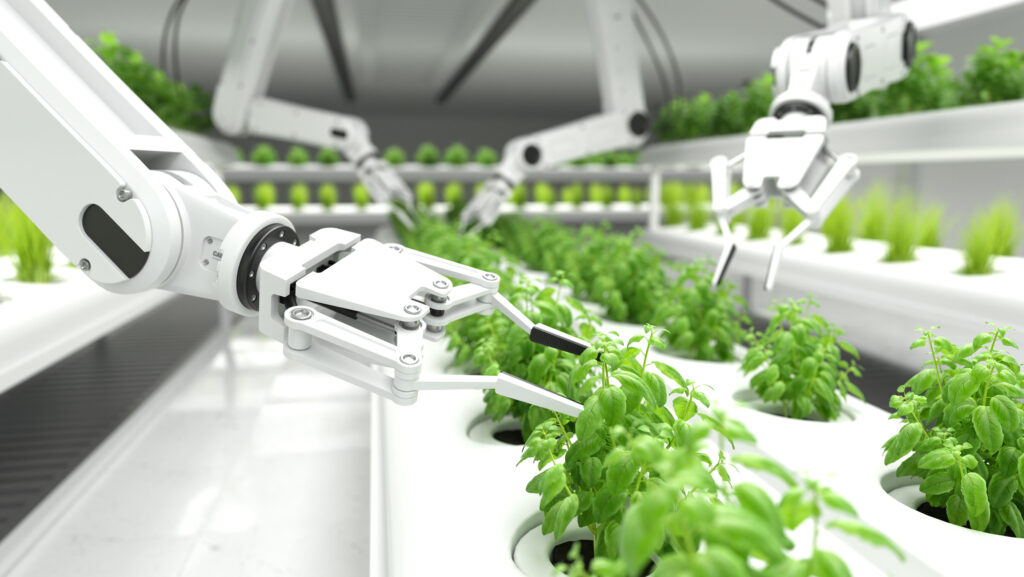Opinion: Why we need to invest in agri-tech innovation
 © Adobe Stock
© Adobe Stock Just as farming covers a multitude of different products, systems and business types, so the term “agri-tech” has expanded.
For many, it perhaps conjures up drones and robots, but for me, it is a term that captures a far wider range of innovations.
Automation and robots are being used for scouting, detecting and picking produce to overcome persistent labour availability issues.
See also: Have UK’s Agri-Tech Centres achieved and what’s next?
About the author

Phil Bicknell is chief executive of the UK Agri-Tech Centre. Here, he sets out how and why agri-tech needs greater public and private investment.
Artificial intelligence tools are being used to assist farmers with data-driven decisions to enhance their farm management.
Drones and satellite data and imagery are used to track soil conditions and detect crop diseases;
And biotechnologies and gene-editing technologies are being used to combat disease and improve animal health and welfare… to name just a few areas of agri-tech innovation.
But despite the boundless opportunities agri-tech presents for our sector, some myths persist that are holding back some of its potential.
One such misconception is that agri-tech is only focused on farming. In reality, agri-tech innovations are being developed and implemented across the breadth of today’s agri-industries, including horticulture, aquaculture and forestry.
Another myth is that agri-tech is costly. Agri-tech businesses are very aware of the financial pressures in the sector and many are focused on developing low-cost technologies, such as drones and data apps, that deliver high value and help reduce costs.
And then there is the view that agri-tech is only being developed for large or corporate agri-businesses, whereas agri-tech innovations are being developed for, and in collaboration with, farming and agri-businesses of all sizes and specialisms.
A fourth misconception is that agri-tech is not compatible with regenerative, circular and sustainable farming practices.
Again, a high number of businesses are very much focused on developing sustainable solutions that combat the effects of climate change, support biodiversity and reduce the emission of greenhouse gases.
Other obstacles
While such myths and misconceptions can be overcome, there are other, bigger obstacles that need to be addressed to accelerate the development and adoption of agri-tech innovation.
One key issue is that it takes time to bring such innovation to the marketplace in our complex and fragmented sector – and the clock is ticking. In the next 10-15 years we will have to significantly transform our food production and supply chains, but it often takes five-10 years to commercialise innovation.
New research for the UK Agri-Tech Centre also found that four in 10 respondents said access to funding was the biggest barrier to developing new technology.
This was followed by resource and time constraints, and the ability to attract investment, while regulatory hurdles were experienced by more than one in four agri-food businesses.
Yet overwhelmingly, there is high demand from the sector for new technology and solutions to be explored, developed and adopted.
Now is the time to seize the opportunity to drive agri-tech innovation at unprecedented levels for the benefit of the farming and agri-food sector, for consumer food security, and for the protection of the environment.
We need to direct more strategic and targeted government funding to longer-term research and adoption programmes, and de-risk funding for private investors to stimulate long-term investment in agri-tech projects and businesses.
With the recent establishment of the UK’s largest dedicated agri-tech organisation, the UK Agri-Tech Centre, through the merger of Crop Health and Protection, the Centre for Innovation Excellence in Livestock and Agricultural Engineering, Precision and Innovation, and with core funding from Innovate UK, we are laser-focused on harnessing science to accelerate progress and become a world leader in agri-tech innovation.
